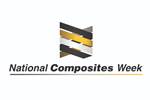Additive Manufacturing Media announces new educational presentation series, AM InDepth
Presented with IMTS Spark, the series will explore how 3D printing technology is changing the face of manufacturing.

Source | AM
Sister publication has announced AM In-Depth, a series of discussions with top names in production 3D printing exploring what is next for additive manufacturing (AM) technology. The series will be part of the IMTS Spark platform and is scheduled to run Mondays, Wednesdays and Fridays during the weeks of September 21-28, 2020. There will be two speakers per day, one at 1:00 p.m. Eastern, and one at 2:30 p.m. Eastern.
Sessions will focus on real-world applications of industrial AM, sharing the successes and speed bumps it took to get the applications up and running, with the sessions including Q&A with the presenters. Topics include design for additive manufacturing (DFAM), processes, materials, implementation strategies, serial production and more. Presenters are pulled from OEM manufacturers like Varroc Lighting Systems (Plymouth, Miss., U.S.); research institutions like Penn State University; and contract manufacturers like Cumberland Additive (Pflugerville, Texas, U.S.), Knust-Godwin (Katy, Texas, U.S.) and Tangible Solutions (Fairborn, Ohio, U.S.).
“We want to take a deep dive into what is making additive technology tick in modern manufacturing,” said Peter Zelinski, Editor-in-Chief of Additive Manufacturing Media and the program director for AM InDepth. “If you are already working with 3D printing, developing your AM for production plan or just trying to figure out how the technology could benefit your business, you will find valuable information here.”
More information is available at https://www.imts.com/spark/ExclusiveConferences/AM-Indepth.html
Related Content
-
Optimized rib-reinforced hollow composites via printed molds
Addyx topology optimization and water-soluble mandrel enables simultaneous rib and skin layup for one-shot, high-strength, lightweight structures.
-
Multi-material, self-sensing, 3D-printed scoliosis braces
Startup Fited and Brightlands Materials Center have developed a lighter weight, thinner CFRP corrective brace, including pressure sensors made from continuous carbon fibers.
-
Reinforcing hollow, 3D printed parts with continuous fiber composites
Spanish startup Reinforce3D’s continuous fiber injection process (CFIP) involves injection of fibers and liquid resin into hollow parts made from any material. Potential applications include sporting goods, aerospace and automotive components, and more.



